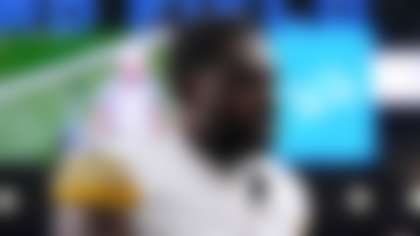NorthShore University HealthSystems board-certified neurological surgeon Dr. Gail Rosseau is a board-certified surgeon specializing in neurosurgery in the Chicago area. She has been an examiner for the American Board of Neurological Surgery and has been elected to the leadership of the American Association of Neurological Surgeons, World Federation of Neurosurgical Societies.
Rosseau, who already was a member of the USA Football Medical Advisory Committee, was selected last month to join the USA Football Board of Directors, a group that includes NFL Commissioner Roger Goodell, former NFL executive Carl Peterson and former NFL running back Merril Hoge.
Earlier this week, Rosseau talked with NFL Evolution contributing editor Bill Bradley about her work as a neurosurgeon, her decision to join USA Football and how she responds to parents who question her involvement in football.
What made you pursue neurological science rather than another medical career?
I was always interested in medicine. I think we all want to make a difference in what we do. I thought early on that medicine was a good career for feeling like you are able to make a measurable difference every day. Why neuroscience? You just assess the time and the history of the world in which you live and I was fascinated by neuroanatomy, and also I got the sense that the advances in medicine during my time as a doctor were going to be in the neurosciences. I thought that was one of the last frontiers, and I wanted to be a part of that.
Very few women are neurosurgeons. Just under five percent of neurosurgeons are women. Why do you think the numbers are so low?
We actually have looked into it and we've published a white paper in our journal, "The Journal of Neurosurgeons," about the future and retention of women in neurosurgery. We looked at what were those factors. There were multiple factors. One of them had to do with natural biology and the time when young people are thinking about starting a family. Because of the long training to become a neurosurgeon, those two periods overlap. That makes the work-life balance a little difficult. And I think we also did identify some areas where the profession could be more welcoming and many of those ideas have already been acted upon. For instance, we started having mentors or even sponsors, using men or women who are already in the profession for years or a generation ahead.
You were recently added to the board of directors for USA Football. How did that organization discover you?
One never knows exactly when you're invited for something like this, but my guess is it was just a bubbling up of the local work I've been doing for 20 years. As a neurosurgeon and someone who has been involved in the organization of neurosurgery, I've been an active supporter of the head and spine injury organization called "Think First (Foundation)." It was developed jointly by the two major neurosurgery organizations in North America. ... "Think First" now has chapters in nearly every state and nearly 40 countries and reaches nearly a half million students a year with a central nervous system injury prevention curriculum. I've been doing that all of my time in practice for more than 20 years. I've also been involved as my children have gotten older -- I have a son and a daughter who are teenagers -- with tee ball and softball and baseball and soccer and football. There are always reasons to get involved in their sports and to bring an injury-prevention discussion to their sports. More recently, I've been involved in the return-to-play decisions for the scholarship athletes at Northwestern University. I think it's just an evolution of all of the things that I have done locally.
Football is not the easiest sport for a neurosurgeon to endorse. Why did you get behind USA Football?
I'm behind athletics in general for kids. I think there's very good evidence that if we want young people to be good students -- after all, that's their job, to be good students -- and there's very good evidence that student athletes actually perform better academically than students who aren't involved in athletics. As both a neurosurgeon and a parent, I support a sound mind and a sound body. I support the scholar athlete in whatever sport and whatever academic pursuit they select. I have talked to basketball groups and fencing groups and lacrosse groups and baseball groups and football groups. That's the message that I support.
Why do support football in particular?
Football comes to me very naturally because I'm the daughter, the wife and the mother of football players. And I was a cheerleader, so I've always liked the sport. I just like football and my family likes football. We spend a lot of time watching practices and games. It was natural that I would support that. I have a son who is currently a high school varsity football player. He plays middle linebacker. ... When he was 8 and wanted to start playing football, I sought out the advice of my fellow neurosurgeons who have achieved positions in the NFL and said, "We facing a decision here. Do I let my son play? Tell me what you know." These are the leaders in my field. They wisely counseled me that in the youth level when kids are weight-matched rather than age-matched, then the level of injuries are about the same as any other sport. They correctly predicted that once you get into high school, when there can be much larger weight discrepancies, by then he will love the game. ... I think all kids should be involved in sports of some kind if they are able to and we should make all sports safe.
Look at the message that our youth are getting. There is an epidemic of obesity and sedentary lifestyles among our youth in a way that's alarming. It's even gotten the attention of the White House. Our First Lady's major program is, "Let's move" and fight childhood obesity. We can't be telling kids on the one hand don't be obese, move, eat well, but be worried about all of the sports you're in. You want to able to give them a consistent message that says eat well, exercise well and we'll do everything we can with rules, equipment and efforts to make whatever sport you're in as safe as it can be.
What is it that you like about the Heads Up Football program?
I think it's a great program. Everyone I've met who's involved in it is absolutely committed to not only making football as safe as it can possibly be for youth, but also in using the popularity and the penetrance of football in our American society to have youth football lead the way for how every sport can be safe. We're also in USA Football in the health and safety committee talking about the very practical things we can to do to help prevent sudden cardiac deaths, which occasionally happen to an athlete not only in football but it happens cross country and in basketball and in every kind of sport where you get your heart rate up. We want to be leaders in helping to prevent that. We want to be leaders in research and promulgating the message on how to avoid dehydration in practice and in play. These are principles that apply to every sport, not just contact sports and not just football.
What would you tell a parent who asks you at a football practice, "How can you be a neurosurgeon and be such a proponent of football?"
I would tell them that being a scholar athlete is really important. Both of my kids did that. My son happens to like football and baseball and there are risks that go along with those sports. I love these sports. I love him and his brain more, but I'm really invested in in the examination of whether this is safe or not and I think this is an appropriate level of risk. Both of my children have been peer advisors and "Peer Champions" of the "Think First" program. They go out and talk with younger kids about wearing your helmet when you go out biking. Remember, the No. 1 sporting activity in terms of relations to head injuries is not any of the contact sports. The No. 1 sport in these terms is biking. No one is talking about taking bikes away. But (in the committee) we are talking about how to be safer on your bike. That comes from the President on down. ...That's what should be happening with everyone in a leadership position; they should be modeling safer behaviors. I see USA Football and its Heads Up Football program as a very good way of modeling safe behaviors.
What's the next step for making football safe, especially for the head and neck?
There are always things to be done. And they are being done. We just don't have the answers yet. We're in a period of evaluating what we know and what we need to know and putting resources behind studies to help us learn more about what we need to know. The next steps -- in fact some of these are in progress already -- are that we need to know about all of these are in some degrees. I have been talking about concussions because that's what I know about. I'm a neurosurgeon, so I have a particular interest in protecting the brain, the spinal cord and the peripheral nerves. But my patients not only have that. They also have a heart. So he needs to know how to prevent sudden arrhythmias that can injure our children. We need to know more about dehydration and how to prevent that. We need to protect kids against orthopedic injuries and rehab them properly. My husband is an orthopedic surgeon.
This is part of our personal and professional lives. How do we make sports safer? Each individual person wants total health. They want to be concussion free, but don't want to have their heart stop. They want to be cardiac healthy, but not with painful orthopedic injuries. We the specialists who make up the health and safety committee of USA Football represent many different specialties of medicine and trainers. But we are all interested in the maximum amount of health for our young athletes in every body system. We want to see them be good students and this is all part of it.



